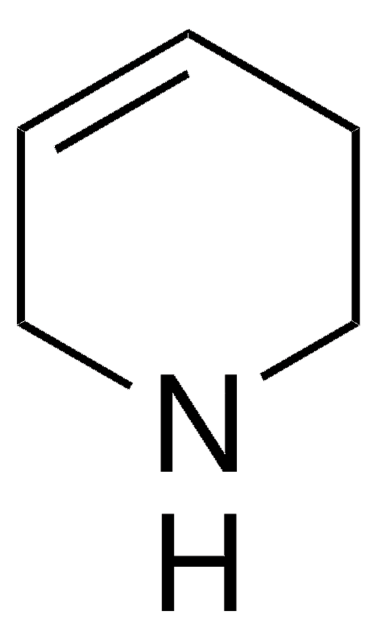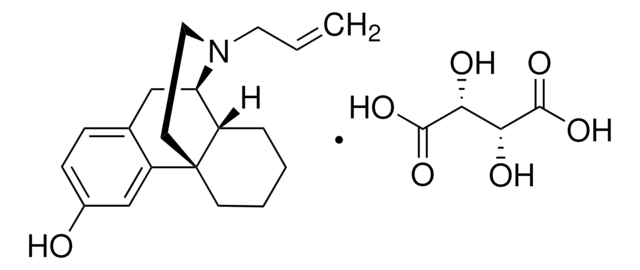Fontos dokumentumok
M0896
MPTP Hydrochloride
≥98% (AgNO3), powder, dopaminergic neurotoxin
Szinonimák:
MPTP HCl, Pyridine, 1,2,3,6-tetrahydro-1-methyl-4-phenyl-, hydrochloride, MPTP hydrochloride
About This Item
Javasolt termékek
product name
1-Methyl-4-phenyl-1,2,3,6-tetrahydropyridine hydrochloride, powder
form
powder
Minőségi szint
drug control
kontrollierte Droge in Deutschland
szín
white to off-white
SMILES string
Cl[H].CN1CCC(=CC1)c2ccccc2
InChI
1S/C12H15N.ClH/c1-13-9-7-12(8-10-13)11-5-3-2-4-6-11;/h2-7H,8-10H2,1H3;1H
Nemzetközi kémiai azonosító kulcs
KOWJANGMTAZWDT-UHFFFAOYSA-N
Looking for similar products? Látogasson el ide Útmutató a termékösszehasonlításhoz
Általános leírás
Alkalmazás
- to study the effect of docosahexaenoic acid on the apelin distribution of the nervous system
- to study the behavioral impairments correlated to neurochemical deficits
- to study the effects of treadmill exercise on neuroprotection and neuroinflammation
Biokémiai/fiziológiai hatások
Figyelmeztetés
Egyéb megjegyzések
Figyelmeztetés
Danger
Figyelmeztető mondatok
Óvintézkedésre vonatkozó mondatok
Veszélyességi osztályok
Acute Tox. 3 Oral - STOT SE 1
Célzott szervek
Nervous system
Tárolási osztály kódja
6.1C - Combustible acute toxic Cat.3 / toxic compounds or compounds which causing chronic effects
WGK
WGK 3
Analitikai tanúsítványok (COA)
Analitikai tanúsítványok (COA) keresése a termék sarzs-/tételszámának megadásával. A sarzs- és tételszámok a termék címkéjén találhatók, a „Lot” vagy „Batch” szavak után.
Már rendelkezik ezzel a termékkel?
Az Ön által nemrégiben megvásárolt termékekre vonatkozó dokumentumokat a Dokumentumtárban találja.
Az ügyfelek ezeket is megtekintették
Tudóscsoportunk valamennyi kutatási területen rendelkezik tapasztalattal, beleértve az élettudományt, az anyagtudományt, a kémiai szintézist, a kromatográfiát, az analitikát és még sok más területet.
Lépjen kapcsolatba a szaktanácsadással














